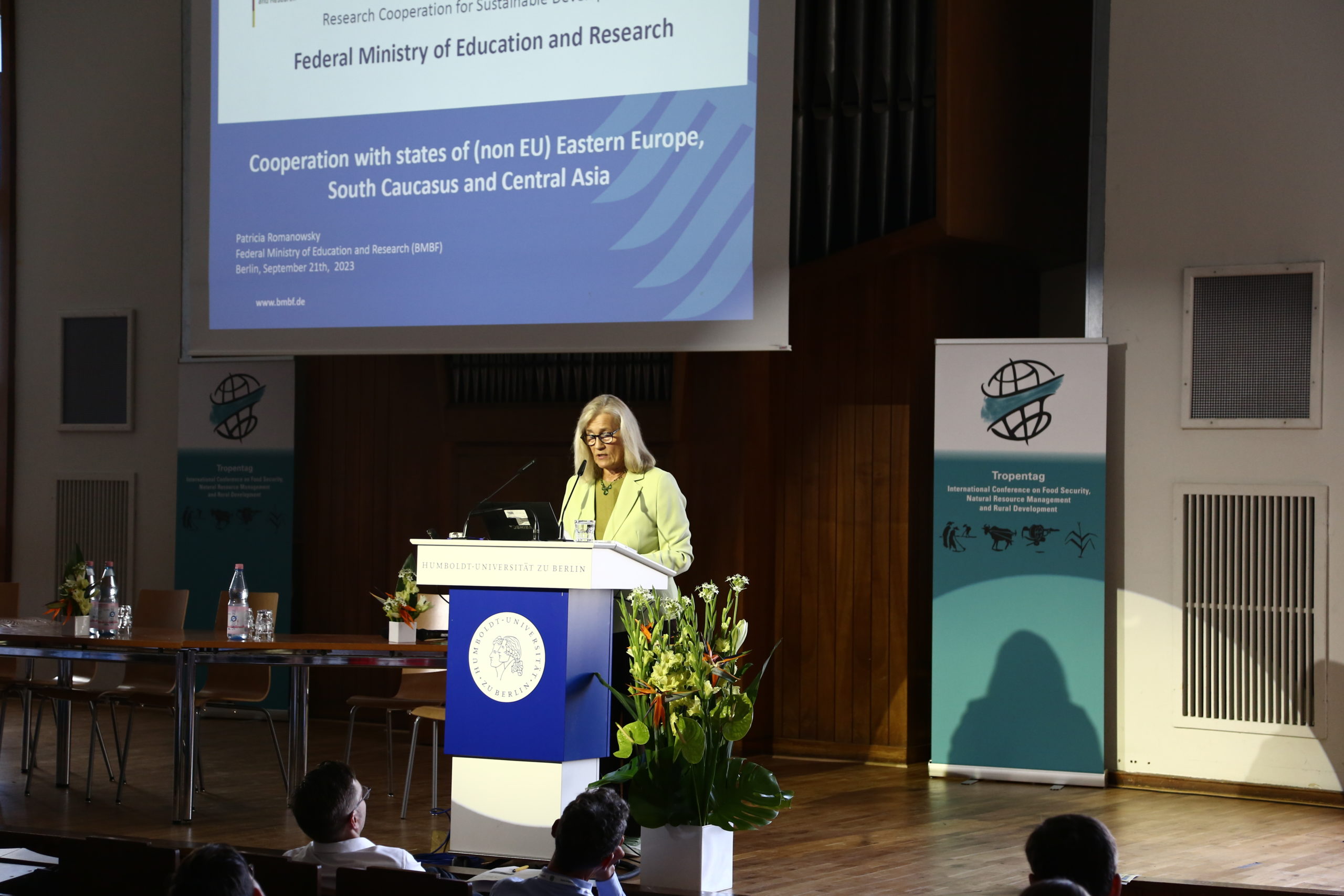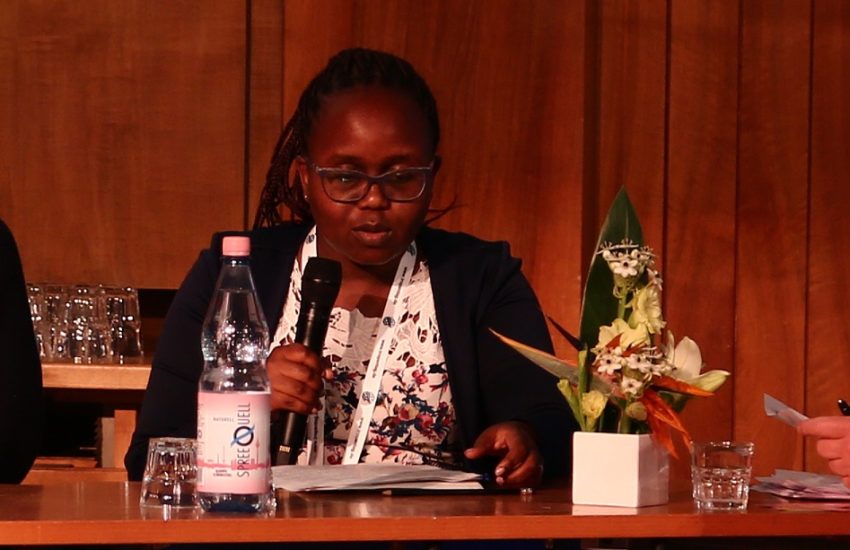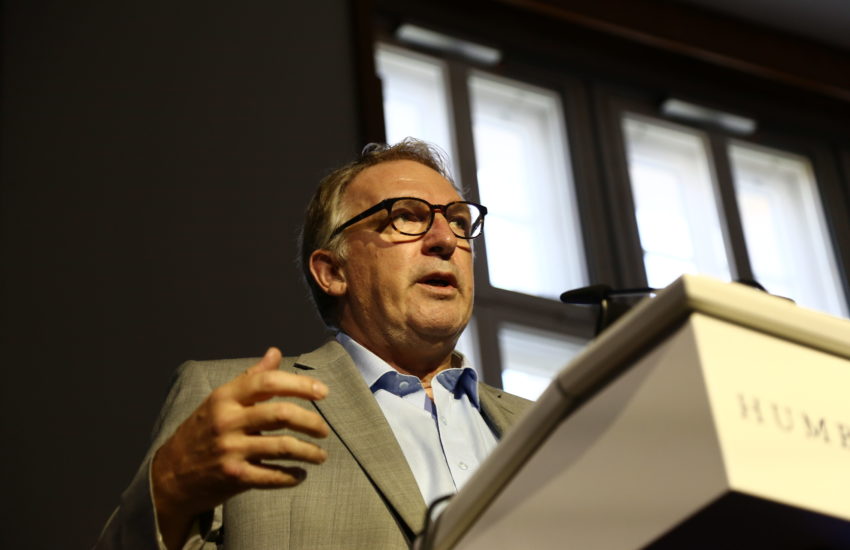Fostering Sustainable Development Through Research Collaboration: BMBF/DLR Session
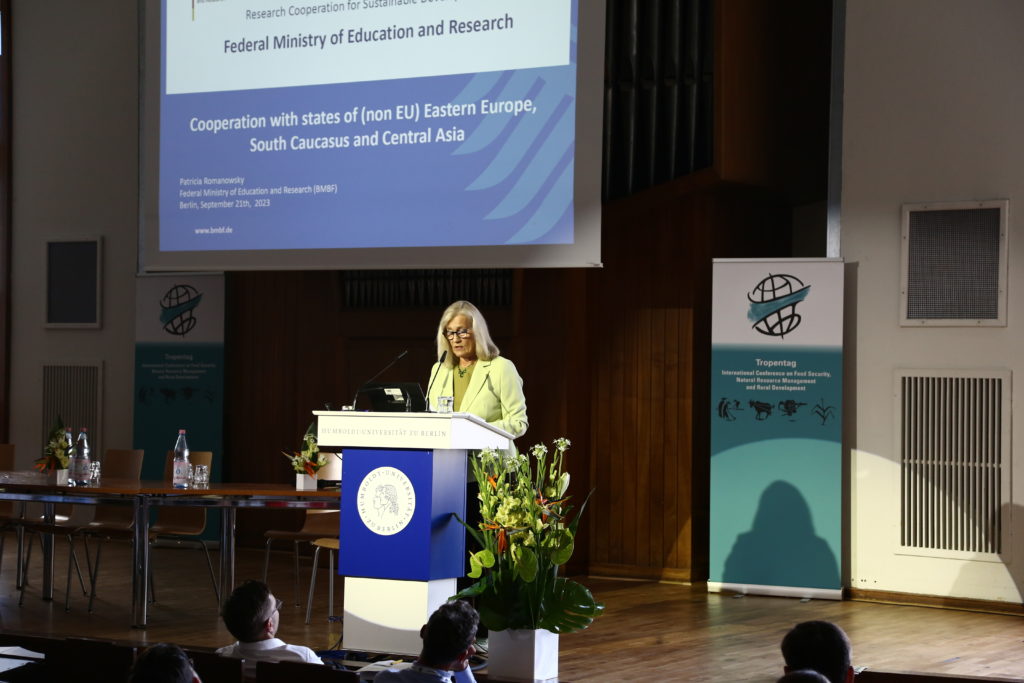
The Imperative of Innovation
Patricia Romanowski, representing BMBF, emphasized the urgent need for innovative solutions and models to address the multifaceted challenges posed by climate issues, the ongoing pandemic, and geopolitical conflicts. In non-EU Eastern European, South Caucasus, and Central Asian nations, characterized by a rich spectrum of research themes and substantial potential for investigating adaptive strategies in response to prevailing global crises, along with favorable research infrastructure, the significance of cooperation is heightened.
BMBF’s Commitment to Sustainability
Patricia Romanowski provided insights into BMBF’s funding mechanisms and initiatives, encompassing a wide range of activities such as information exchange, mobility programs, scientific staff exchanges, collaborative projects, institutional initiatives, and strategic partnerships. These projects vary in terms of stages and duration, with a strong emphasis on sustainability, both in cooperation and development, including infrastructure enhancements among project collaborators. Success in research endeavors hinges on striking a balance between academic freedom and alignment with political priorities. Young scientists interested in sustainable development research and international collaboration are encouraged to explore funding opportunities within BMBF-supported research topics, accessible here: BMBF Funding Opportunities.
Exploring Livestock Trade
Dr. Irina Hopp of Justus-Liebig-University Gießen introduced the Project TRANS-LIVESTOCK, delving into the challenges and opportunities in trans-border livestock trade between Tajikistan and Uzbekistan. The project investigates the state of trade, existing trade barriers, and strategies to revive livestock trade between the two countries. While the project is still in its early stages, it has illuminated the prevalence of “informal and informal contractual relations” in the value chains. Additionally, intermediaries such as butchers and mobile traders play a key role in connecting households to processors. Land ownership remains a challenge for households with cattle. The study has also revealed stronger links with the poultry sector and highlighted gaps in regional prices that stimulate informal cross-border trade. To address these challenges, the project suggests providing physical and institutional infrastructures to promote stakeholders’ participation in formal value chains, alongside measures like centralizing the purchasing system and state plans.
Green Hydrogen Production
Dr. Paul Bertheau from the Reiner-Lemoine-Institute (RLI) presented findings from the HyRECA-Production project, focusing on the potential of green hydrogen (GH2) production in Central Asia. Shifting toward greener energy production is essential for sustainable food systems, and green hydrogen, produced from carbon-neutral sources, is one ingredient in this transition. Central Asia’s involvement in GH2 production aligns with the goal of decarbonizing the region’s energy systems and exploring the potential for export as a sustainable commodity. Questions surrounding feasibility, production capacity, and the technology’s contribution to regional cooperation, sustainability, and decarbonization remain central. The project, ongoing until 2024, aims to develop an open-source model of energy transition pathways in partner countries. More information on the project can be found here: HyRECA-Production.
Mapping Biodiversity in the Caucasus
Dr. Nils Hein from the Leibniz Institute for the Analysis of Biodiversity Change (LIB) shared insights from the CaBOL project (Caucasus Barcode of Life). The primary goal of this project is to create a comprehensive inventory of organisms in the Caucasus, facilitating the tracking of biodiversity loss and the formulation of protective measures in biodiversity hotspots. CaBOL’s workflow is based on the existing GBOL framework (German Barcode of Life). Activities include workshops, joint lectures, expeditions, excursions, and collaboration on student theses to promote knowledge exchange and “Citizen Science.” To date, over 500 species have been added to the Caucasus inventory. Ongoing efforts include establishing a biodiversity center in the Caucasus and creating a virtual platform for various uses, including scientific, science-related, and environmental policy. Further details can be found on CaBOL’s social media pages: Facebook and Instagram.
Science-Based Management for Lake Sevan
Martin Schultze from the Helmholtz-Zentrum für Umweltforschung (HZU) presented insights from the SEVAMOD2 project, focusing on establishing knowledge-based management for Lake Sevan in Armenia, the largest lake in the Caucasus. Lake Sevan faces numerous challenges, including uncontrolled cyanobacteria growth and oxygen depletion, detrimental to aquatic life. Effective and sustainable management systems require credible environmental data and investment in monitoring systems to understand the underlying drivers. Schultze emphasized the importance of communication with local experts, transparency to build trust, generation of credible science, and influencing stakeholders, authorities, and the government to make an impactful international research effort.
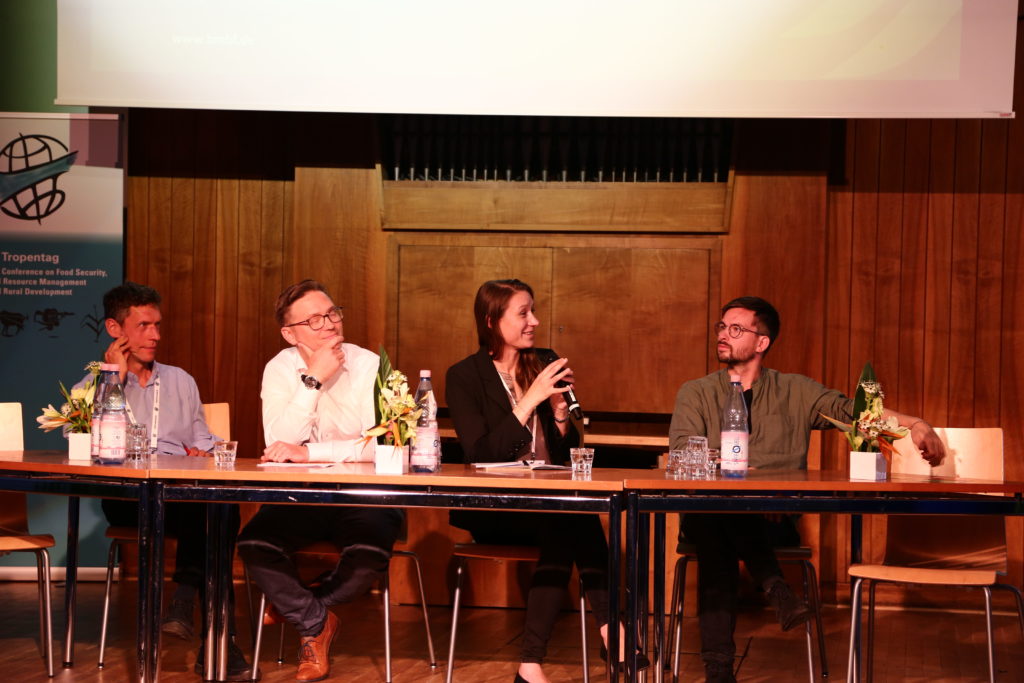
Strategies for Impactful Research
The panel of researchers shared strategies for increasing the impact of scientific research. These included fostering connections among individuals to explore alternative approaches, integrating science into society for enduring impact, engaging in dialogues with NGOs and the public, collaborating with fellow researchers, and involving decision-makers throughout the research process.
Motivating Young Scientists
The session concluded with an intriguing question: How can we motivate young scientists to engage in research? While increased funding was acknowledged as a significant factor, creating meaningful career opportunities for students, offering flexible working conditions, nurturing an environment conducive to career growth, and subsidizing salaries to allow more time for research were deemed equally important. Additionally, building the capacity of talented researchers to develop their own projects and secure funding through extended fellowships and research stays was emphasized.
The session was chaired by Dr. Kirsten Kienzler and Mikhail Rusakov from DLR-Projektträger, Abteilungsleiterin Zusammenarbeit mit Staaten des Östlichen Europas (ohne EU), Südkaukasus, Zentralasien, with the presence of Gabriele Hermani from BMBF, Referatsleiterin 212 – Zusammenarbeit mit Staaten des Östlichen Europas (ohne EU), Südkaukasus, Zentralasien.

